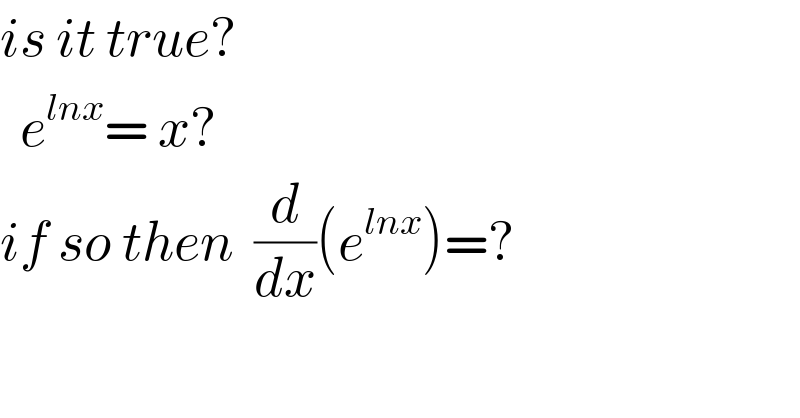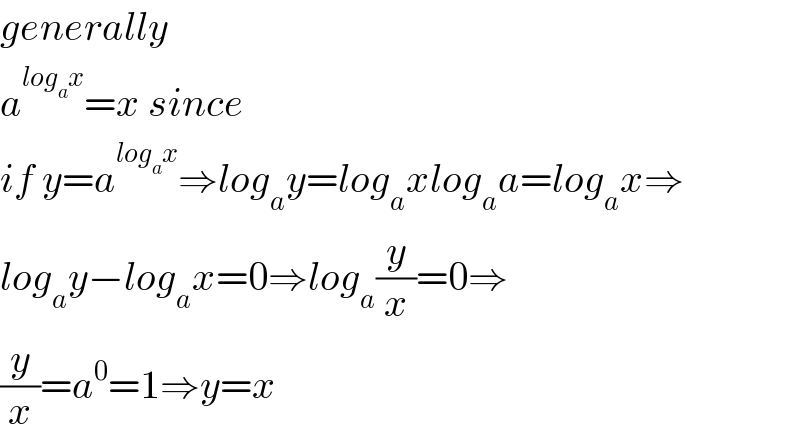
Question and Answers Forum
Question Number 63984 by Rio Michael last updated on 11/Jul/19

Commented by mathmax by abdo last updated on 12/Jul/19

Commented by mr W last updated on 11/Jul/19

Commented by Rio Michael last updated on 11/Jul/19

Commented by kaivan.ahmadi last updated on 11/Jul/19

Commented by kaivan.ahmadi last updated on 11/Jul/19

Answered by MJS last updated on 12/Jul/19

Commented by Rio Michael last updated on 12/Jul/19

